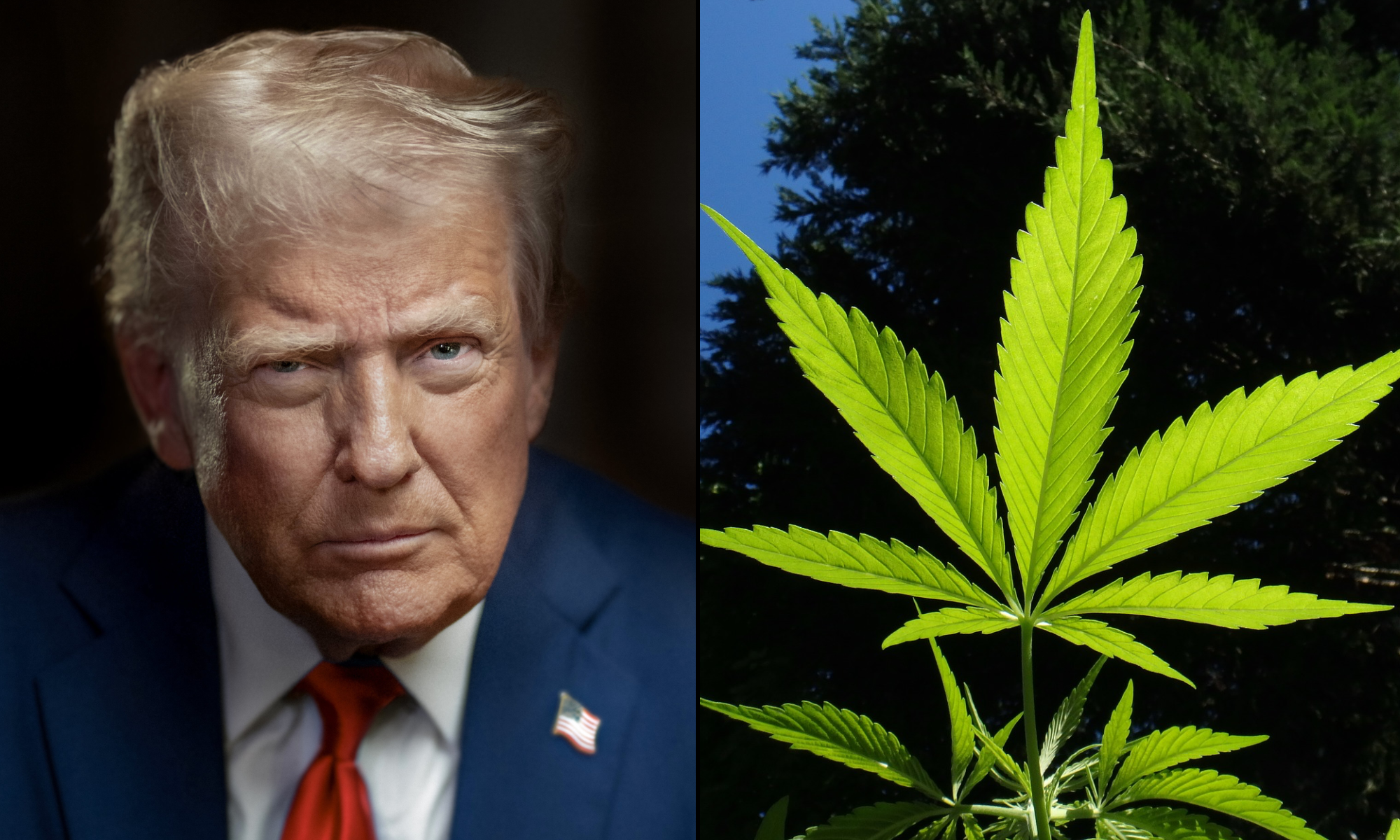Politics
Congress Passes Bill To Recriminalize Hemp THC Products, Sending It To Trump’s Desk

The U.S. House of Representatives has approved a Senate-passed spending bill that includes provisions to ban most consumable hemp products, sending it to President Donald Trump’s desk.
Following a historic, weeks-long government shutdown, the Senate approved the appropriations legislation on Monday to fund critical agencies. Tucked inside the measure is a controversial section to re-criminalize hemp products containing THC that have proliferated since the crop was legalized under the 2018 Farm Bill that Trump signed during his first term in office.
Now the House has followed suit, voting 222-209 on Wednesday to pass the bill. Trump is expected to sign the legislation into law imminently.
Rep. Andy Harris (R-MD), who championed the prohibition in the House, said on the floor ahead of the vote that the provision “closes the hemp loophole that has resulted in the spread of unregulated intoxicating hemp-derived products that are being sold online and in gas stations and corner stores across the country.”
“Many of these products are accessible and attractive to children,” he argued.
Hemp advocates have said, however, that the ban will apply even to nonintoxicating CBD products that people use for medical reasons.
While the hemp ban is only one component of the proposal, a White House spokesperson said on Monday that the president supports the specific language.
There were attempts by GOP lawmakers in both chambers to strike the hemp prohibition provision. But the proposed amendments from Sen. Rand Paul (R-KY) and Thomas Massie (R-KY) did not make it into the final package.
That said, the bill as drafted makes it so the hemp provisions won’t be implemented until one year after enactment. Stakeholders and certain lawmakers such as Sen. Chris Van Hollen (D-MD) say that window could provide an opportunity to advance legislation to create an alternative regulatory model for consumable hemp products.
Jim Higdon, cofounder of the company Cornbread Hemp, told Marijuana Moment this week that industry advocates will work to do just that.
“We can get a bill through Congress next year before this 365-day deadline,” he said, “and it’s time for everybody to come together and focus on what we can get passed in Congress to remediate the worst of it.”
On the Senate side, Paul was joined by 22 Democrats—and, notably, anti-marijuana Sen. Ted Cruz (R-TX)—in voting against a motion to table the amendment to prevent the ban, but the majority ultimately quashed it.
Massie tried to revive the push in the House with his own amendment mirroring Paul’s, but the prospects of its adoption were dubious at best, as there was generally consensus within the Republican caucus that the spending bill should advance without further modifications that could have sent it back to the Senate.
Since 2018, cannabis products have been considered legal hemp if they contain less than 0.3 percent delta-9 THC on a dry weight basis.
The new legislation specifies that, within one year of enactment, the weight will apply to total THC—including delta-8 and other isomers. It will also include “any other cannabinoids that have similar effects (or are marketed to have similar effects) on humans or animals as a tetrahydrocannabinol (as determined by the Secretary of Health and Human Services).”
The new definition of legal hemp will additionally ban “any intermediate hemp-derived cannabinoid products which are marketed or sold as a final product or directly to an end consumer for personal or household use” as well as products containing cannabinoids that are synthesized or manufactured outside of the cannabis plant or not capable of being naturally produced by it.
Legal hemp products will be limited to a total of 0.4 milligrams per container of total THC or any other cannabinoids with similar effects.
Within 90 days of the bill’s enactment, the Food and Drug Administration (FDA) and other agencies will need to publish list of “all cannabinoids known to FDA to be capable of being naturally produced by a Cannabis sativa L. plant, as reflected in peer reviewed literature,” “all tetrahydrocannabinol class cannabinoids known to the agency to be naturally occurring in the plant” and “all other known cannabinoids with similar effects to, or marketed to have similar effects to, tetrahyrocannabinol class cannabinoids.”
The language slightly differs from provisions included in legislation that had previously advanced out of the House and Senate Appropriations panels, which would have banned products containing any “quantifiable” amount of THC, to be determined by the HHS secretary and secretary of agriculture.
Meanwhile, advocates are sharply criticizing congressional leaders for advancing the spending bill ahead of Veterans Day on Tuesday that also omits bipartisan provisions allowing U.S. Department of Veterans Affairs (VA) doctors to recommend medical cannabis to patients in states where it’s legal—even though the policy was approved by the full Senate and House earlier this year.



